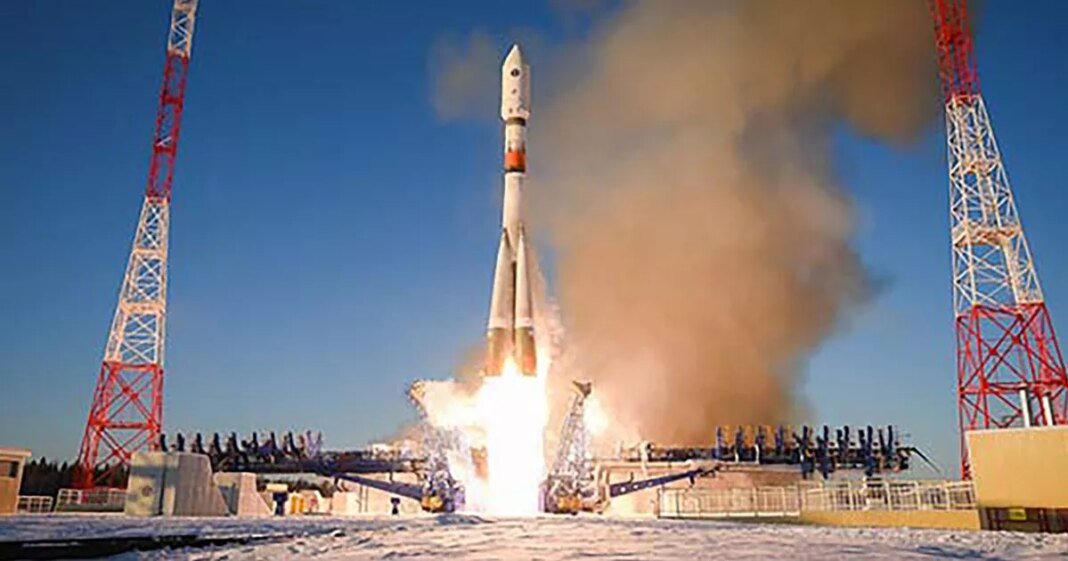A Russian satellite suspected by US officials to be associated with a nuclear anti-satellite weapons program is currently spinning out of control in space. The secretive Cosmos 2553, launched by Russia before the Ukraine invasion in 2022, is believed to be non-operational at present.
This satellite possesses the capability to disrupt satellite networks, including Elon Musk’s Starlink internet system that has been aiding Ukrainians during the conflict. Concerns have been raised regarding its potential use for the development of a nuclear anti-satellite weapon. Despite US warnings, Russian President Vladimir Putin has denied these allegations, stating that Cosmos 2553 was solely for research purposes.
The satellite is viewed as a precursor to a weapon that could cause significant damage by eliminating both military and civilian satellites crucial for various activities, from financial transactions to weather forecasting. Its deployment could provide Russia with a significant advantage in the event of a future global conflict.
American analysts utilizing data from space-tracking firm LeoLabs and optical data from Slingshot Aerospace have observed the satellite’s erratic spinning for approximately a year. While not designed as a weapon itself, the satellite is linked to Russia’s nuclear anti-satellite weapon development plans.
According to the Centre for Strategic and International Studies, the satellite’s behavior strongly suggests it is no longer operational based on observations from LeoLabs. Reports also indicate that the satellite may have stabilized its orbit, although it had previously displayed tumbling movements.
The satellite is believed to have a radar function for Russian military intelligence and radiation testing capabilities. Despite Moscow’s denial of developing a nuclear anti-satellite weapon, concerns remain about Cosmos 2553’s true purpose and potential capabilities.
Launched by Russia using a Soyuz-2 rocket in February 2022, just before the invasion of Ukraine, Cosmos 2553 continues to raise concerns about its intentions and the implications of its existence in space.

